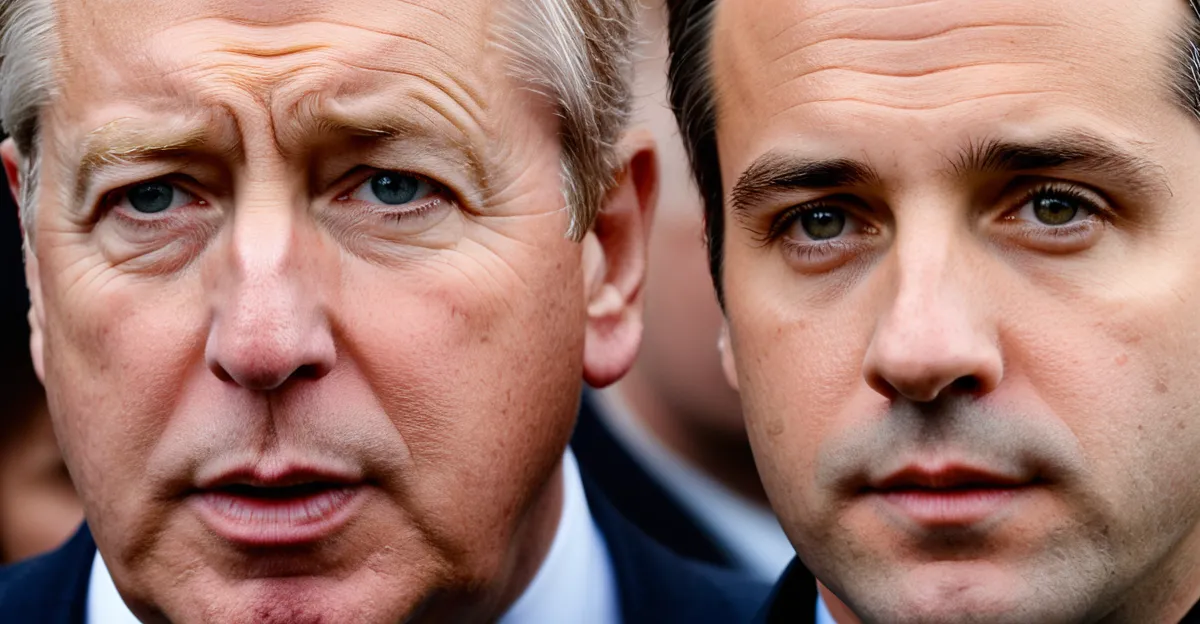Overview of Key Political Issues in the UK (2023–2024)
Political issues 2024 UK highlight several current UK political challenges that significantly shape the nation’s discourse. Among these, the ongoing economic pressures, regional tensions, and party politics dominate the landscape. The UK government challenges include managing inflation and the cost of living crisis, which affect millions of citizens deeply worried about rising prices and stagnant wages.
Another critical challenge is handling the evolving demands of devolution and independence movements, especially in Scotland, where calls for a second referendum remain strong. Political issues 2024 UK also spotlight the strains on public services such as the NHS, which struggles with staffing shortages and high demand post-pandemic. These combined pressures reflect broader UK government challenges around maintaining stability while addressing deeply rooted social and economic problems.
Also to read : What are the UK’s latest initiatives in digital transformation?
Public opinion mirrors these concerns. The growing political polarisation UK shapes debates and voter engagement, complicating solutions to the economic crisis and regional disputes. This complex mix of challenges demands measured, strategic responses to secure political cohesion and improve citizens’ quality of life through 2024.
Brexit Aftermath and Ongoing Impacts
The Brexit consequences continue to shape UK politics deeply, affecting trade, legislation, and foreign relations. Key sectors, from manufacturing to agriculture, face ongoing adjustment challenges as new UK-EU trading arrangements create regulatory hurdles and increased costs. The Brexit impact on UK politics is visible in debates over sovereignty, market access, and alignment with EU standards.
Also to read : What Are the Key Challenges Facing the UK in the Coming Year?
UK government challenges include negotiating trade deals that compensate for lost EU benefits while maintaining access to European markets. Public sentiment remains divided, with some viewing Brexit as a path to regained control, while others express concerns about economic uncertainty. The government has introduced strategies aiming to navigate Brexit’s complexities, such as regulatory reforms and investment in innovation sectors.
Brexit also influences diplomatic ties beyond the EU, compelling the UK to recalibrate its global position. This entails expanding relationships with Commonwealth countries and other partners to offset the shifts in UK-EU relations. Overall, Brexit consequences continue to dominate political issues 2024 UK, requiring ongoing adaptation in policy and governance to address structural changes and public expectations.
Devolution, Independence Movements, and Regional Tensions
Devolution UK remains a central current UK political challenge, notably due to persistent calls for Scottish independence. The political issues 2024 UK includes intense debates on whether Scotland should hold a second referendum. Supporters argue for self-determination and control over resources, while opponents emphasize the risks of economic instability and division. The UK government challenges here involve balancing national unity with respecting devolved powers.
In Wales and Northern Ireland, regional politics also add to tensions. Welsh leaders seek greater autonomy in areas like health and education, reflecting growing public demand for tailored governance. Northern Irish politics remain fragile with power-sharing arrangements tested by disagreements over Brexit’s impact and identity issues.
The UK government faces the intricate task of evolving devolution settlements to accommodate these dynamics without inflaming divisions. This requires constructive dialogue and legal clarity to prevent conflicts over jurisdictions. Devolution UK, coupled with independence movements, thus significantly shapes political discourse and governance approaches, demanding careful management to secure stability across all regions.
Economic Policy and Cost of Living Crisis
The UK economic crisis in 2023–2024 remains a pressing current UK political challenge, largely driven by persistent inflation UK rates that erode household purchasing power. Inflation pressures stem from surging energy prices and supply chain disruptions, which have heightened the cost of living UK 2024 crisis. This scenario forces many families to make difficult choices amid stagnant wage growth and rising essential costs like food, housing, and utilities.
Government policies to address this challenge include targeted energy subsidies and reforms to welfare support to alleviate immediate financial stress. However, debates persist around the scale and sustainability of public spending, with concerns about fiscal responsibility and long-term economic recovery. The housing market further complicates the crisis, as affordability issues limit access to secure homes, intensifying social inequalities.
Public response reflects frustration but also urgency for constructive solutions. Analysts highlight that managing inflation and the cost of living UK 2024 will require coordinated fiscal and monetary strategies alongside social programs. The UK government challenges encompass balancing economic stability with social welfare, while ensuring policies are equitable and effective in restoring confidence during this tumultuous period.
Immigration, Asylum, and Border Control
The UK immigration policy remains one of the most sensitive and complex current UK political challenges in 2023–2024. Recent legislative updates aim to tighten rules around asylum claims and streamline removal processes. The government has introduced measures to deter illegal entries, particularly focusing on the dramatic increase in Channel crossings. These crossings have strained border control UK resources, prompting a mix of enforcement actions and diplomatic efforts with neighbouring countries.
Regarding asylum seekers UK, the approach balances humanitarian obligations with public demands for stricter control. Policies include enhanced screening and the construction of new reception centres, designed to improve processing efficiency and reduce time spent in limbo. However, critics argue that these measures risk undermining the UK’s commitments under international law.
Public opinion towards UK immigration policy is deeply divided, with concerns over border control UK often linked to broader debates about national security and economic impact. International comparisons show the UK grapples with challenges similar to other countries facing migration pressures, underscoring the need for innovative, humane solutions that maintain sovereignty while managing influxes effectively. The UK government challenges in this area demand a nuanced balance of enforcement, diplomacy, and humanitarian care.





